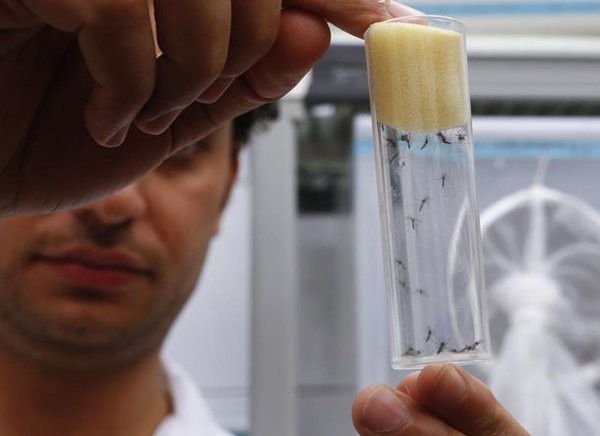Chinese health authorities are now on heightened alert after the country registered its third case of the Zika virus in Zhejiang Province.
The National Health and Family Planning Commission said Friday that the latest Zika patient was a 48-year-old man who arrived in the city of Yiwu in Zhejiang Province from a trip to Fiji and Samoa, China Daily reported.
According to health officials, the unnamed man developed a fever after arriving in the city on Feb. 15. He was immediately put into quarantine and was confirmed to have been infected by the virus. However, the commission said that the patient's temperature has gone down and his condition has improved.
Officials also reported that none of the 32 people confirmed to have made contact with the patient have developed any symptoms.
The latest case came in just nine days after China reported its first Zika infection. The initial patient has been discharged from a hospital and is on the way to full recovery. Meanwhile, the second case was confirmed on Feb. 15. Both cases were reported in the province of Guangdong.
China Disease Control and Prevention Center researcher Li Dexin said that they already expected reports of individual infections, as large numbers of travelers are starting to return from overseas after the Chinese New Year.
However, experts said that the spread of the virus into the country is still slow due to low temperatures brought by winter, which inhibits the growth of mosquitoes.
The Zika virus is spread by the Aedes aegypti mosquito, which is present in southern China. Its symptoms include fever, headaches, muscle and joint pains, rashes and conjunctivitis.
The virus has been reported in more than 30 countries, particularly those in Southern America and the Caribbean, prompting the World health Organization to declare it as a global health emergency.
Earlier, scientists from the Federal University of Rio de Janeiro in Brazil announced that they have sequenced the genome of the virus, which is expected to help in determining how it functions within the body and develop a vaccine and other treatments, CNN reported.
Researchers also said that they have discovered a direct link between Zika and microencephaly, where babies are born with small heads and impaired cognition, after isolating the virus from the brains of fetuses who died from the condition after birth.




























